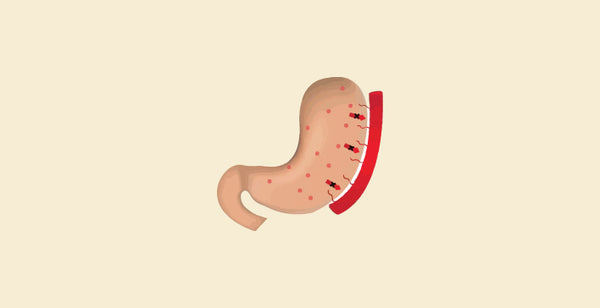Difference between Pernicious Anemia and Macrocytic Anemia: Pernicious Anemia is a subtype of Macrocytic Anemia distinguished by its specific cause: a deficiency in vitamin B12 resulting from impaired absorption, often due to the absence of intrinsic factor. Fatigue, weakness, and neurological issues are brought on by the creation of big, immature red blood cells (macrocytes) as a result of this deficiency. On the other hand, a wider range of illnesses characterized by larger-than-normal red blood cells fall under the umbrella of Macrocytic Anemia. These ailments can be caused by deficiencies in vitamin B12 or folate, medicines, liver disease, or problems relating to the bone marrow. Although Macrocytic Anemia can take many different forms, Pernicious Anemia is a specific type of the disorder that shares comparable hematological symptoms but has a different etiology.
Differences between Pernicious Anemia and Macrocytic Anemia
While Macrocytic Anemia is caused by a variety of factors including enlarged red blood cells, pernicious anemia, a variant of Macrocytic Anemia, is caused by autoimmune damage that compromises vitamin B12 absorption. The table below provides the differences betweenPernicious Anemia and Macrocytic Anemia.
|
Feature |
Pernicious Anemia |
Macrocytic Anemia |
|
Cause |
Vitamin B12 deficiency due to impaired absorption, often autoimmune-related |
Encompasses various causes including vitamin B12 deficiency, folate deficiency, medication side effects, myelodysplastic syndromes, liver disease, etc. |
|
Specificity |
Specific subtype of macrocytic anemia |
Broad category covering multiple etiologies |
|
Autoimmune Factor |
Often involves autoimmune destruction of gastric parietal cells or intrinsic factor |
May or may not involve autoimmune mechanisms |
|
Treatment |
Requires vitamin B12 supplementation or intramuscular injections |
Treatment depends on the underlying cause; may involve B12 or folate supplementation, discontinuation of offending medications, addressing underlying conditions, blood transfusions, etc. |
|
Prognosis |
Generally favorable with appropriate treatment, although complications such as neurological damage may persist if untreated |
Depends on the underlying cause and promptness of treatment; can vary in prognosis accordingly |
|
Associated Conditions |
Autoimmune disorders (e.g., autoimmune thyroid disease, vitiligo), gastrointestinal disorders (e.g., atrophic gastritis) |
Various conditions contributing to nutrient deficiencies or affecting red blood cell production; chronic diseases (e.g., chronic alcoholism, liver cirrhosis), malignancies, infections, etc. |
|
Laboratory Findings |
Elevated mean corpuscular volume (MCV), low serum B12 levels, possible presence of intrinsic factor antibodies |
Elevated MCV, low serum B12 or folate levels depending on the cause, peripheral blood smear may show macrocytosis with or without anemia, reticulocyte count may be normal or decreased |
Browse The Best Scrubs Collection!
What is Pernicious Anemia?
Pernicious Anemia is a type of anemia that is characterized by a deficiency in vitamin B12. It usually occurs due to impaired absorption due to the autoimmune destruction of gastric parietal cells or intrinsic factors. This autoimmune component distinguishes it from other forms of anemia.
Causes of Pernicious Anemia
- Autoimmune Gastritis: This is the most common cause of Pernicious Anemia. The immune system of the body targets the stomach cells that make an intrinsic factor, a protein required for the small intestine to absorb vitamin B12. This condition is known as autoimmune gastritis. Vitamin B12 insufficiency results from improper absorption of the vitamin in the absence of intrinsic factors.
- Dietary Factors: A deficit may result from consuming insufficient amounts of foods high in vitamin B12, such as meat, fish, eggs, and dairy products. This is especially prevalent among devout vegans and vegetarians who abstain from eating anything that comes from animals.
- Gastrointestinal Disorders: Vitamin B12 absorption may be hampered by several gastrointestinal disorders, including Crohn's disease, celiac disease, and surgically removed portions of the stomach or intestines.
- Drugs: proton pump inhibitors, which are used to treat gastric reflux illness, and metformin, which is used to treat diabetes, can cause long-term problems with vitamin B12 absorption.
- Age: People become less able to absorb vitamin B12 from their diet as they get older, which may lead to a deficit.
Symptoms of Pernicious Anemia
- Fatigue: Because the body is unable to create enough healthy red blood cells, which are vital for supplying oxygen to tissues and organs, pernicious anemia frequently manifests as persistent weakness and exhaustion.
- Weakness: People who have pernicious anemia may feel generally weak and lethargic, which frequently makes it difficult to go about their everyday business.
- Breathlessness: Anaemia can cause a decrease in the blood's ability to carry oxygen, which can make breathing difficult, especially while exerting oneself physically.
- Pale or Yellowish Skin: The breakdown of red blood cells and the buildup of bilirubin can result in the skin appearing pale or yellowish (jaundice) when there is an inadequate supply of healthy red blood cells.
- Dizziness: Decreased blood flow to the brain can cause lightheadedness, dizziness, or even fainting episodes.
- Heart Palpitations: Anemia can make the heart work harder to make up for the blood's reduced ability to carry oxygen, which can result in palpitations or a fast heartbeat.
What is Macrocytic Anemia?
Erythrocytes, or red blood cells, that are larger than usual are characteristic of Macrocytic Anemia. These cells are called "macrocytic" because of their larger size. Many conditions can lead to this illness, such as vitamin B12 and folate deficits, drug side effects, alcoholism, liver disease, hypothyroidism, and problems with the bone marrow.
Causes of Macrocytic Anemia
- Deficit in Vitamin B12: A common cause of Macrocytic Anemia is a deficit in vitamin B12, also known as cobalamin. This insufficiency can be caused by an inadequate diet (particularly in those who eat a vegan or vegetarian diet), malabsorption syndromes (like pernicious anemia, which is a condition in which the body cannot absorb vitamin B12 because it lacks intrinsic factor), some drugs, or disorders of the small intestine (like Crohn's disease or celiac disease).
- Folate Deficiency (Vitamin B9): Another B vitamin deficiency that can cause macrocytic anemia is folate intake. Poor food intake, malabsorption syndromes, some drugs (like methotrexate), excessive alcohol use, or increased demand (such as during pregnancy) can all lead to folate insufficiency.
- Drugs: Certain drugs can obstruct DNA synthesis, which can result in macrocytic anemia. These pharmaceuticals may include some anticonvulsants, antiretroviral drugs used to treat HIV, and certain chemotherapeutic therapies.
- Alcoholism: Prolonged alcohol use affects bone marrow function and can impede the absorption of important vitamins, such as folate and vitamin B12. This can result in macrocytic anemia.
- Liver Disease: Red blood cell synthesis can be disrupted by diseases including cirrhosis and hepatitis, which can result in macrocytic anemia.
- Hypothyroidism: Red blood cell production can be impacted by an underactive thyroid gland, which can result in macrocytic anemia.
Symptoms of Macrocytic Anemia
- Fatigue: Despite getting enough sleep, feeling exceptionally weak or exhausted.
- Weakness: decreased endurance or strength, frequently making daily tasks more difficult.
- Pale Skin: A less pigmented skin tone that can occasionally be seen on the face, lips, and nail beds.
- Dizziness or Lightheadedness: feeling lightheaded, faint, or unsteady, especially after rising fast.
- Hands and Feet that are Cold: Reduced blood flow causes cold extremities.
- Headaches: Headaches that come on often or last a long time.
- Poor Memory or Concentration: Inability to focus, recall details, or keep mental clarity.
- Mood Shifts: Easily agitated, depressed, or moody.
Shop Best Lab Coats From Here!
Similarities between Pernicious Anemia and Macrocytic Anemia
- Macrocytosis: Larger-than-normal red blood cells, or Macrocytic Anemia, are a feature of both Pernicious Anemia and Macrocytic Anemia. A complete blood count (CBC) test shows an elevated mean corpuscular volume (MCV) as a result of this.
- Anemia: A reduction in the total quantity of red blood cells is the outcome of both disorders, causing anemia. This may result in symptoms like weakness, exhaustion, and dyspnea.
- Megaloblastic Changes: The bone marrow may exhibit megaloblastic changes in cases of pernicious anemia as well as other types of Macrocytic Anemia. This describes anomalies in red blood cell precursor maturation that lead to bigger and less mature cells.
In conclusion, Macrocytic Anemia is a more general category of anemia defined by larger-than-normal red blood cells, whereas Pernicious Anemia is a particular kind of Macrocytic Anemia brought on by a vitamin B12 deficiency. While Macrocytic Anemia can have several reasons, such as deficiencies in vitamin B12 or folate, certain drugs, liver illness, or hypothyroidism, Pernicious Anemia is caused by reduced absorption of vitamin B12 as a result of autoimmune death of stomach parietal cells. Whereas treating Macrocytic Anemia requires figuring out what the underlying cause is, treating Pernicious Anemia usually entails taking vitamin B12 supplements for the rest of one's life.
Order the Best Jogger Scrub From Here!
| Check out More Articles | |
| Difference Between Tendon and Ligament | |
| Difference Between Seizure and Epilepsy | |
| Difference Between Hypothyroidism and Hyperthyroidism | |















